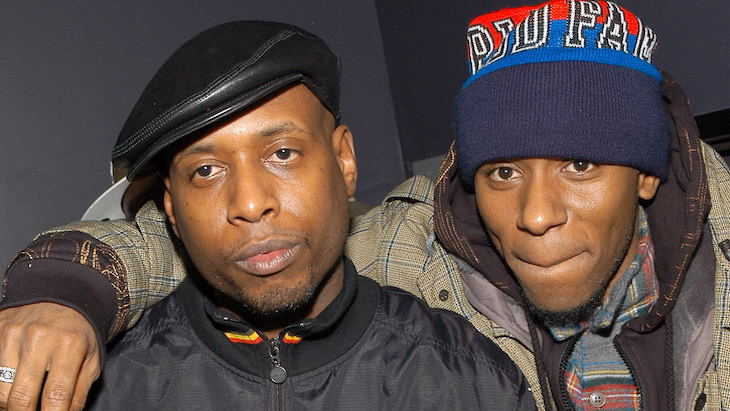
Rawkus Records’ Rise & Fall Is Detailed In A New Video
It was 15 years ago this fall that Rawkus Records stopped releasing albums. The “Rawkus 50” campaign allowed a new generation of MCs and producers to digitally release product with the same label that introduced many Hip-Hop Heads to names like Mos Def, Talib Kweli, Company Flow, High & Mighty, Thirstin Howl The 3rd, and more. That same imprint would offer new pathways for veteran careers like Pharoahe Monch, Kool G Rap, Big L, R.A. The Rugged Man, and DJ Spinna, to name a few.
As online video maker “Def Goldbloom” points out, Rawkus has now been gone longer than the label ever existed. He has made an approximately 11-minute visual that examines the life-cycle of Rawkus through its releases and some lesser-publicized information.
9th Wonder Explains Why Soundbombing & Rawkus Kept His Hip-Hop Dreams Alive (Video)
The video highlights the impact of Nervous Records. That New York City label put out crucial releases by Black Moon, Smif-n-Wessun (who would work closely with Rawkus in time as Cocoa Brovaz), and Mad Lion, became an inspiration to the imprint launched by school-mates Jarret Myer, Brian Brater, and James Murdoch. Notably, some of Rawkus’ early 12″ vinyl releases went beyond Hip-Hop, dabbling in Rock, Drum & Bass, and more.
By 1997, the label made crucial inroads with Company Flow’s Funcrusher Plus. That release built upon years of groundwork from El-P, Mr. Len, and Bigg Jus. Later that year, the label strategically picked Black Moon’s DJ Evil Dee to mix the first Soundbombing, while decade-long veterans Kool Keith and De La Soul hosted the first Lyricist Lounge compilation, a 1998 double-disc. Later, in 1998, Mos Def & Talib Kweli’s Black Star union earned tremendous critical and commercial acclaim. That release reportedly allowed Rawkus to secure a distribution deal with the same Priority Records that had been instrumental to successes of N.W.A., Mack 10, and Master P. Over the next several years, Rawkus continued to rise—earning a gold plaque for Mos Def’s Black On Both Sides and taking a major social stand with Hip Hop For Respect. That project involved 41 MCs to honor the 41 NYPD bullets that wrongfully struck and killed Amadou Diallo in early 1999. Rawkus also released a posthumous Big L album that also earned a plaque, as well as the critically-acclaimed Train Of Thought by Reflection Eternal.
Thirstin Howl The 3rd Gives Polo & Ralph Lauren A New Kind Of Boost
With an increased profile, Rawkus entered a joint venture with MCA Records. Veteran acts like Q-Tip, Brand Nubian, D.I.T.C., and Styles P continued to work with the imprint on songs and compilations. However, the label—then home to J Dilla, Blackalicous, The Roots, and Common, would close and merge into Geffen/Interscope. There, Rawkus suffered—leading albums by Kool G Rap and Mad Skillz to delay or shelf.
The doc also looks to where and how funds were spent in those later years, using a quote from Evil Dee. After securing a deal with Sony Red distro, Rawkus attempted to plant a flag the emerging digital space. They dropped albums by Marco Polo, Kidz In The Hall, and Procussions (whose Stro Elliot has since joined The Roots). The Rawkus 50, a user-facing contest, invoked submissions from MCs like Silent Knight and Kaze to Mr. Metaphor and Finale, however—the luster of the label was lost in the changing technologies and guards. It was an unceremonious end to an incredible 10-plus-year-run.
However, through its artists, Rawkus’ impact remains everlasting.
Can You Spot MF DOOM In This Graffiti-Inspired Company Flow Video?
#BonusBeat: A recent AFH breakdown of Black Star’s sophomore album, No Fear Of Time: